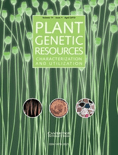
AUSTRALASIAN PLANT PATHOLOGY
Scope & Guideline
Dedicated to enhancing plant disease prevention strategies.
Introduction
Aims and Scopes
- Plant Pathogen Identification and Characterization:
The journal emphasizes research on identifying and characterizing plant pathogens, including fungi, bacteria, viruses, and nematodes. This includes molecular techniques for pathogen detection and understanding their genetic diversity. - Disease Management Strategies:
Research on integrated disease management strategies, including biological control, chemical treatments, and cultural practices, is a core focus. This encompasses studies on fungicide effectiveness, resistance breeding, and sustainable agricultural practices. - Impact of Environmental Factors on Plant Diseases:
The interaction between environmental factors and plant diseases is a significant area of interest. Studies often explore how climate change, soil health, and agricultural practices influence disease dynamics. - Genetic Resistance and Tolerance:
The journal publishes studies that investigate genetic resistance and tolerance in various crops to specific diseases. This includes identifying resistance genes and understanding their mechanisms. - Emerging Pathogens and Diseases:
Research on newly emerging plant pathogens and diseases, particularly those affecting economically important crops, is highlighted. This includes case studies and surveillance reports. - Ecological and Evolutionary Aspects of Plant Pathology:
The journal also explores the ecological and evolutionary dynamics of plant-pathogen interactions, contributing to a deeper understanding of disease epidemiology.
Trending and Emerging
- Molecular and Genomic Approaches:
There is an increasing emphasis on molecular and genomic techniques for understanding plant-pathogen interactions. This includes the development of molecular markers, genomic sequencing, and CRISPR technologies for disease detection and resistance breeding. - Climate Change Impact Studies:
Research focusing on the impact of climate change on plant diseases is gaining traction. This includes studies on how changing weather patterns affect pathogen behavior and disease outbreaks, highlighting the need for adaptive management strategies. - Sustainable and Eco-Friendly Disease Management:
There is a growing trend towards sustainable and eco-friendly approaches to disease management, including the use of biocontrol agents, organic amendments, and integrated pest management practices. - Machine Learning and Predictive Analytics:
The application of machine learning and predictive analytics in agriculture, particularly for disease forecasting and management, is an emerging theme. This reflects a shift towards data-driven decision-making in plant pathology. - Indigenous Knowledge and Practices:
There is an increasing recognition of the value of Indigenous knowledge and practices in managing plant diseases. Research is emerging that aims to integrate traditional ecological knowledge with modern scientific approaches.
Declining or Waning
- Traditional Chemical Control Methods:
There is a noticeable reduction in studies focused solely on traditional chemical control methods for plant diseases, as there is a growing trend towards integrated pest management and sustainable practices. - Focus on Localized Pathogen Studies:
Research that is highly localized, focusing exclusively on specific pathogens in limited geographic areas, appears to be decreasing. There is a shift towards broader studies that incorporate multiple pathogens and their interactions across regions. - Single Pathogen Studies:
The prevalence of studies investigating single pathogens in isolation is waning, as researchers increasingly recognize the complexity of plant disease systems involving multiple pathogens and environmental factors. - Descriptive Studies without Management Implications:
There has been a decline in purely descriptive studies that do not propose management strategies or implications for disease control, as the journal aims to provide actionable insights for practitioners.
Similar Journals

ARCHIVES OF PHYTOPATHOLOGY AND PLANT PROTECTION
Championing Research for Sustainable Agricultural PracticesArchives of Phytopathology and Plant Protection, published by Taylor & Francis Ltd, stands as a pivotal platform in the field of agronomy and crop science since its inception in 1974. With an ISSN of 0323-5408 and E-ISSN of 1477-2906, this journal is dedicated to publishing high-quality, peer-reviewed research that addresses contemporary challenges in plant pathology and protection. As a Q3 ranked journal in its category with Scopus Rank #210/406, it serves a vital role in disseminating practical solutions and innovative discoveries to enhance agricultural productivity and sustainability. The journal fosters a rich exchange of ideas among researchers, professionals, and students, empowering them to contribute to the advancement of the agronomy and biological sciences. Despite being traditionally subscription-based, the journal's commitment to comprehensive and rigorous research makes it an essential resource for anyone invested in the future of plant health and agricultural innovation.

Annual Review of Phytopathology
Navigating the complexities of plant health challenges.Annual Review of Phytopathology, published by ANNUAL REVIEWS, is an esteemed journal that has been at the forefront of the field since its inception in 1973. With a focus on both Plant Science and Medicine, the journal holds a prestigious Q1 ranking in both categories for 2023, reflecting its influence and significance in the academic community. The journal features comprehensive review articles that encapsulate significant advancements and emerging trends in phytopathology, providing valuable insights for researchers, professionals, and students alike. Its rigorous peer-review process ensures the highest quality of publication, making it essential for anyone seeking to stay informed on critical issues affecting plant health and related disciplines. With an impressive Scopus ranking of #10 out of 516 in Agricultural and Biological Sciences, Annual Review of Phytopathology remains a vital resource for the dissemination of cutting-edge knowledge, fostering innovation and collaboration within the field.

Plant Genetic Resources-Characterization and Utilization
Harnessing Nature's Blueprint for Sustainable GrowthPlant Genetic Resources-Characterization and Utilization, published by Cambridge University Press, is an esteemed journal in the field of plant science, particularly focusing on the genetic resources crucial for agriculture and crop improvement. With an ISSN of 1479-2621 and an E-ISSN of 1479-263X, this journal serves as a vital platform for researchers aiming to advance the understanding of genetic variation and its applications in plant breeding and conservation. The journal boasts an impressive positioning within its categories, achieving Q2 in Agronomy and Crop Science, Q4 in Genetics, and Q3 in Plant Science as of 2023, which reflects its commitment to publishing high-quality research. Although primarily subscription-based, the journal is accessible to institutions and individuals seeking to stay at the forefront of innovations in plant genetic resources. Researchers, professionals, and students alike will find valuable insights into the latest methodologies, findings, and implications for sustainable agriculture and ecosystem management in its pages. As a key resource for advancing knowledge and practical applications in its field, Plant Genetic Resources-Characterization and Utilization continues to significantly contribute to the scientific community and the understanding of plant biodiversity.

PLANTA
Unveiling the secrets of plant evolution and biochemistry.PLANTA, published by SPRINGER, stands as a pivotal journal in the field of plant sciences and genetics, known for its rigorous peer-reviewed research that has influenced the advancement of botanical science since its inception in 1925. With an impressive trajectory of convergence from the years 1925 to 1945, and again from 1947 to 2024, this journal maintains a strong reputation, currently categorized in the prestigious Q1 tier of Plant Science and Q2 tier in Genetics as of 2023. The journal is recognized for its high impact, ranked #64 out of 516 in Plant Science by Scopus, representing the top 87th percentile within its category, while also securing a strong position in Genetics with a #92 rank. The journal serves as a critical resource for researchers, professionals, and students who are eager to explore the complex genetics, biochemistry, and evolutionary biology of plants. Though primarily subscription-based, the quality of the research published in PLANTA makes it an essential reading for anyone serious about advancing their knowledge and understanding of plant sciences.

JOURNAL OF PHYTOPATHOLOGY
Driving forward the science of plant-pathogen interactions.JOURNAL OF PHYTOPATHOLOGY, published by Wiley, stands as a premier platform for disseminating cutting-edge research in the field of plant health, emphasizing the interactions between plants and pathogens. Since its inception in 1958, the journal has fostered a rich legacy of advancing scientific knowledge and understanding in areas encompassing Agronomy, Crop Science, Genetics, and Plant Physiology. With its notable impact factor and respectable positions in respective Scopus ranks, including Q2 in Agronomy and Crop Science, JOURNAL OF PHYTOPATHOLOGY is essential for researchers, professionals, and students dedicated to understanding and overcoming plant-related challenges. Although it operates under a traditional subscription model, the journal’s contributions remain crucial for anyone involved in plant science and pathology, making it an invaluable resource for enhancing agricultural productivity and sustainability. The journal’s commitment to excellence continues to inspire innovative research and informative discussions among the global scientific community.

PHYTOPATHOLOGIA MEDITERRANEA
Advancing plant health through innovative research.PHYTOPATHOLOGIA MEDITERRANEA is a premier open access journal published by the Mediterranean Phytopathological Union, dedicated to advancing knowledge in the fields of Agronomy, Crop Science, Horticulture, and Plant Science. With its Q1 status in Agronomy and Crop Science and Horticulture and a strong ranking in Plant Science, this journal is recognized for its significant contribution to research, featuring high-quality studies and reviews that address contemporary challenges in plant health and disease management. As an essential resource for researchers, professionals, and students, PHYTOPATHOLOGIA MEDITERRANEA facilitates the dissemination of cutting-edge research and serves as a critical hub for academic discourse in the Mediterranean region and beyond. Since embracing open access in 2014, the journal has further enhanced its visibility and accessibility, providing a valuable platform for innovative ideas and collaborative research in the vital domain of plant pathology. The journal is indexed in Scopus with impressive rankings, including the 20th percentile in Horticulture, which underscores its esteemed position within the academic community, making it an indispensable source for anyone looking to stay abreast of developments in the field.

Legume Research
Cultivating Knowledge for Sustainable Legume SolutionsLegume Research, published by the AGRICULTURAL RESEARCH COMMUNICATION CENTRE in India, is an essential peer-reviewed journal focusing on advancements in the field of agronomy, crop science, soil science, and plant science. With an ISSN of 0250-5371 and operating since 2008, this journal caters to researchers, agricultural professionals, and students interested in the critical role of legumes in sustainable agriculture and food security. It ranks within the third quartile (Q3) in several prominent categories, reflecting its contribution to the agricultural and biological sciences community—ranking #279 in Agronomy and Crop Science, #113 in Soil Science, and #376 in Plant Science based on Scopus metrics. Although not open access, Legume Research remains a vital resource for those seeking to enhance their knowledge and contribute novel research findings in the ever-evolving discipline of legume cultivation and utilization. With a clear objective to disseminate impactful research, this journal significantly contributes to the global understanding of legumes' ecological, economic, and nutritional importance.

PHYTOPATHOLOGY
Leading the way in plant pathology research.PHYTOPATHOLOGY, published by the American Phytopathological Society, is a premier journal dedicated to advancing the science of plant pathology. With an ISSN of 0031-949X and E-ISSN 1943-7684, this journal has been a cornerstone of scholarly communication in the field since its inception in 1946. Ranked in the top quartile (Q1) in both Agronomy and Crop Science and Plant Science for 2023, PHYTOPATHOLOGY has garnered notable recognition with Scopus ranks placing it at #86/516 (83rd percentile) in Plant Science and #69/406 (83rd percentile) in Agronomy and Crop Science. The journal publishes high-quality research articles, reviews, and case studies that explore innovative solutions to plant diseases, thereby supporting agricultural productivity and sustainability. While currently not an open-access journal, it offers vital insights and findings that are invaluable to researchers, professionals, and students aiming to advance their knowledge and contribute to the field of plant sciences.

Vavilovskii Zhurnal Genetiki i Selektsii
Exploring New Horizons in Agricultural GeneticsVavilovskii Zhurnal Genetiki i Selektsii, with ISSN 2500-0462 and E-ISSN 2500-3259, is a distinguished open-access journal published by the Russian Academy of Sciences, Institute of Cytology and Genetics. Since transitioning to open access in 2013, the journal has been dedicated to advancing research and discourse in the fields of genetics and selection, particularly within agricultural and biological sciences. With a current ranking of Q2 in Agricultural and Biological Sciences and Q3 in Biochemistry, Genetics and Molecular Biology according to Scopus, it serves as a pivotal platform for researchers, professionals, and students to disseminate their findings and collaborate on innovative ideas. The journal, housed in the vibrant academic environment of Novosibirsk, Russia, publishes a diverse range of articles that contribute to the ongoing evolution of genetic studies and practical applications in agriculture. Its commitment to quality and accessibility ensures it plays an essential role in the global scientific community, fostering knowledge that bridges theoretical research and practical implementation.

Phytopathology Research
Connecting global researchers to cultivate agricultural advancements.Phytopathology Research, published by SPRINGERNATURE, serves as a vital resource in the rapidly evolving fields of biochemistry, genetics, molecular biology, and plant sciences. Since adopting an open access model in 2019, this journal has fostered an inclusive approach to disseminating cutting-edge research and breakthroughs in plant pathology and related disciplines. With an impressive impact factor in the second quartile for Biochemistry, Genetics and Molecular Biology (miscellaneous) and Plant Science, and a robust standing in the Scopus rankings, it attracts high-quality contributions from researchers around the globe. The journal not only supports the academic community's quest for advanced knowledge but also plays a crucial role in addressing global agricultural challenges through innovative research. Positioned in the United Kingdom and operating with a keen focus on enhancing plant health and resistance, Phytopathology Research continues to be an essential platform for both established and emerging scientists in this vital area of study.